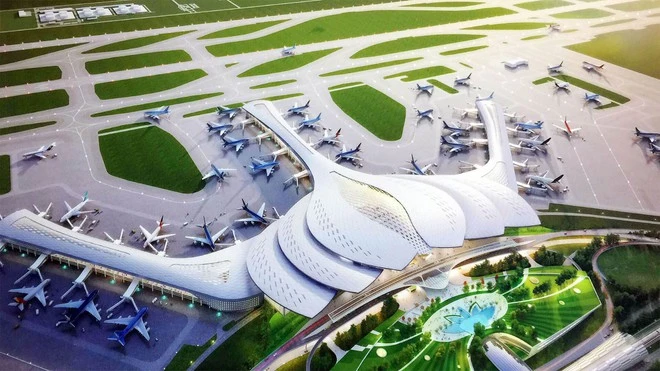
Vietnam’s population of approximately one hundred million, and its growing global presence in the world will make it necessary to exploit the enormous untapped potential of the aviation industry. It is therefore imperative to remove bottlenecks in policies and procedures and promote a strong aviation industry within Vietnam.
Difficult market to enter
According to the International Air Transport Association (IATA), Vietnam is one of the fastest growing aviation markets in the world, with an average revenue growth rate of 7.4% per annum. According to Bui Doan Ne, General Secretary of the Aviation Business Association, to meet the needs of a population of about hundred million people, the above growth rate is appropriate.
Currently, there are five airlines operating within the country, including two private airlines, helping Vietnam airlines sector to have a new image and face after making significant changes. In particular, the most obvious change is the benefit to consumers. The competition has helped many people have the opportunity to fly cheaper with better services.
According to experts, the entry of a new airline at this time will not be easy. Although the State has an open-door policy to create conditions for many sectors in the economy to participate in the aviation industry, but in reality, there are many barriers to overcome. Mr. Dang Tat Thang, Deputy General Director of Bamboo Airways, said that to establish an airline we must follow both the 2014 Investment Law as well as Decree 92 of the Prime Minister.
So the number of procedures are much more. That is the difference in the formation process for state-owned and private businesses. Then, from the initial ten aircrafts, if we want to increase the number of aircraft, we must again move for approval to the Prime Minister, the Ministry of Transport, and the Aviation Department to once again fill reams of documents, same as at the early and initial stages when starting the airline.
Nguyen Dinh Cung, Director of the Central Institute for Economic Management, said that the process of entering the aviation market is still very difficult, even illogical. Instead of trying to resolve existing problems, the authorities do not allow businesses to act but find ways to limit them. These methods need changing for the sake of development.
Open aviation to private sector
There are currently two main bottlenecks in the development of Vietnam's aviation industry, namely, infrastructure and manpower. The fact that the aviation infrastructure has not met the development needs of the market has led to the current overload. This is due to various restrictions in the current mechanism. It also means that the State has not opened the doors for private investment. The effective participation of the private sector in the aviation industry was initially demonstrated in the Van Don International Airport investment project.
However, private businesses are still at risk of being excluded due to aviation coming under a specific field which is related to national security. For example, for the Long Thanh International Airport investment project or the T3 terminal project at Tan Son Nhat International Airport, the Ministry of Transport is still favoring the Airports Corporation of Vietnam (ACV). In case of the Dien Bien Airport, although the local government wants to speed up the investment process and some private investors wants to join, the Ministry of Transport still insists on ACV as main investor.
Without removing the distinction between state and private businesses in the process of investment, it is not known when the bottlenecks in aviation infrastructure investment will be removed. It is time to create a legal framework wide enough for businesses to compete on an equal level. There is no competition between airlines, but the competition is only between the state and the private sector. Dr. Nguyen Dinh Cung said that in the current context, the State should only play a guiding role in policies and directions, and create an equal opportunity for state-owned and private businesses.
-Dr. Vũ Tiến Lộc, President of Vietnam Chamber of Commerce and Industry.
In the process of developing the aviation industry in 2020, with an orientation towards 2030, the Government is aiming at the Vietnam aviation market to rank fourth among the ASEAN countries in terms of output. If it does not boldly open the doors for future prospects, change policies and mechanisms to attract resources to invest in the aviation sector, this goal will not be easy to achieve.
Lawyer Nguyen Danh Hue from the Hanoi Bar Association, said that the Government should be open to create conditions for the private sector to participate in the aviation market, create competition, and also generate profits for the State, along with good services for the consumer.




















